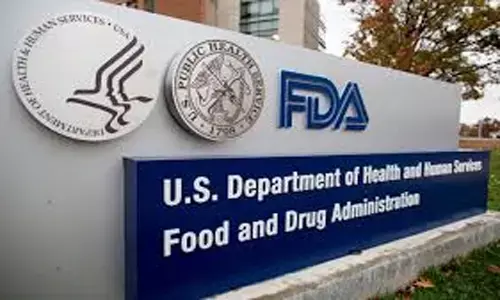- Home
- Medical news & Guidelines
- Anesthesiology
- Cardiology and CTVS
- Critical Care
- Dentistry
- Dermatology
- Diabetes and Endocrinology
- ENT
- Gastroenterology
- Medicine
- Nephrology
- Neurology
- Obstretics-Gynaecology
- Oncology
- Ophthalmology
- Orthopaedics
- Pediatrics-Neonatology
- Psychiatry
- Pulmonology
- Radiology
- Surgery
- Urology
- Laboratory Medicine
- Diet
- Nursing
- Paramedical
- Physiotherapy
- Health news
- Fact Check
- Bone Health Fact Check
- Brain Health Fact Check
- Cancer Related Fact Check
- Child Care Fact Check
- Dental and oral health fact check
- Diabetes and metabolic health fact check
- Diet and Nutrition Fact Check
- Eye and ENT Care Fact Check
- Fitness fact check
- Gut health fact check
- Heart health fact check
- Kidney health fact check
- Medical education fact check
- Men's health fact check
- Respiratory fact check
- Skin and hair care fact check
- Vaccine and Immunization fact check
- Women's health fact check
- AYUSH
- State News
- Andaman and Nicobar Islands
- Andhra Pradesh
- Arunachal Pradesh
- Assam
- Bihar
- Chandigarh
- Chattisgarh
- Dadra and Nagar Haveli
- Daman and Diu
- Delhi
- Goa
- Gujarat
- Haryana
- Himachal Pradesh
- Jammu & Kashmir
- Jharkhand
- Karnataka
- Kerala
- Ladakh
- Lakshadweep
- Madhya Pradesh
- Maharashtra
- Manipur
- Meghalaya
- Mizoram
- Nagaland
- Odisha
- Puducherry
- Punjab
- Rajasthan
- Sikkim
- Tamil Nadu
- Telangana
- Tripura
- Uttar Pradesh
- Uttrakhand
- West Bengal
- Medical Education
- Industry
Stop SGLT2 inhibitors just before surgery- FDA advises label changes

The Food and Drug Administration has approved safety changes in labeling of all sodium-glucose transporter 2 (SGLT2) inhibitors .
The new changes in labeling are that SGLT2 inhibitors namely Canagliflozin, dapagliflozin, and empagliflozin should be discontinued 3 days before scheduled surgery, and ertugliflozin should be stopped at least 4 days before the surgery.Blood sugar should be monitored after drug discontinuation and appropriately managed before surgery.
These changes have been made because surgery may put patients being treated with SGLT2 inhibitors at a higher risk of ketoacidosis.
"The SGLT2 inhibitor may be restarted once the patient's oral intake is back to baseline and any other risk factors for ketoacidosis are resolved," the agency added.
SGLT2 inhibitors lower blood sugar by causing the kidneys to remove sugar from the body through the urine. Their safety and effectiveness have not been established to treat diabetic ketoacidosis or to treat patients with type 1 diabetes. These medications are available as single-ingredient therapies and also in combination with other diabetes medicines.
While side effects vary among SGLT2 inhibitors, they can include urinary tract infections and genital mycotic (fungus) infections. Acute kidney injury, hypotension (low blood pressure), ketoacidosis, necrotizing fasciitis of the perineum (a type of severe bacterial infection), and hypersensitivity have also occurred among people taking SGLT2 inhibitors. Canagliflozin is associated with an increased risk of lower limb amputation. Impairment in renal (kidney) function is also a side effect of empagliflozin and ertugliflozin. Hypoglycemia (low blood sugar) can occur in patients also taking insulin or insulin-secreting agents. Patients with severe renal impairment, end-stage renal disease, who are on dialysis treatment, or with a known hypersensitivity to the medication should not take SGLT2 inhibitors.
For further reference log on to:
Dr Kamal Kant Kohli-MBBS, DTCD- a chest specialist with more than 30 years of practice and a flair for writing clinical articles, Dr Kamal Kant Kohli joined Medical Dialogues as a Chief Editor of Medical News. Besides writing articles, as an editor, he proofreads and verifies all the medical content published on Medical Dialogues including those coming from journals, studies,medical conferences,guidelines etc. Email: drkohli@medicaldialogues.in. Contact no. 011-43720751


